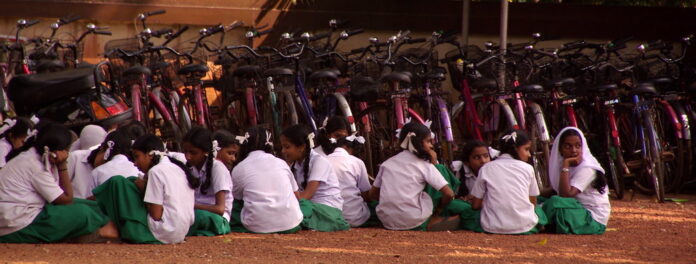The pandemic and poverty hit girls
If it wasn’t for UNESCO, with all its authority, to tell us, we’d have a hard time believing it. Due to the COVID-19 pandemic, 767 million poor children and women (out of 1.5 billion students) were forced out to school. Eleven million are at risk to never return (terredeshommes.it, 2020-09-14), because predictably, the impoverished families will send them to the fields to work or early marriage. If so, it must be clearly stated that civil society is about to suffer a severe blow, as part of the efforts made over the past 25 years for gender emancipation. In developing countries, especially for young girls, the school represents a point of reference for their requests for help and protection from possible harassment and family violence. If you consider that in Kenia schools will remain closed throughout the year, you can get an idea of the social failure that the pandemic indirectly causes.
Female genital mutilation
If this was not enough, the forced interruption of programs against child marriages allows families to subject girls to the cruel practiced of genital mutilation, which is normally effectively combatted against by school medical checks. To get an idea of the size of the phenomenon, in Somalia 98% of women have undergone this amputation. Unfortunately 2 million mutilations are expected in the next ten years. What’s more, difficulty supplying contraceptives could result in both an increase in early pregnancies, and the spread of sexual diseases. The Marie Stop International Association has predicted the possibility of more than 2 million abortions, 11 thousand deaths during birth and 3 million unwanted pregnancies.
Malnourished and traditional gender discrimination
Additionally, traditional gender discrimination hasn’t been eradicated yet, especially in sub-Saharan countries. In the event of a food crises, malnutrition mainly effects baby girls and young girls. Boys usually receive better health care than their sick peers. Mothers know they should breastfeed as long as possible, while the baby girls are deprived of it well in advance. This is due to the hope of women who have had a daughter to have a son as soon as possible. And since breastfeeding reduces the chance of pregnancy, it is socially accepted that girls stop breastfeeding as soon as possible. According to the study cited by the 2020 Report of Save the Children, up to forty-five thousand girls die in sub-Saharan Africa each year from lack of breastfeeding.
You can also read:








